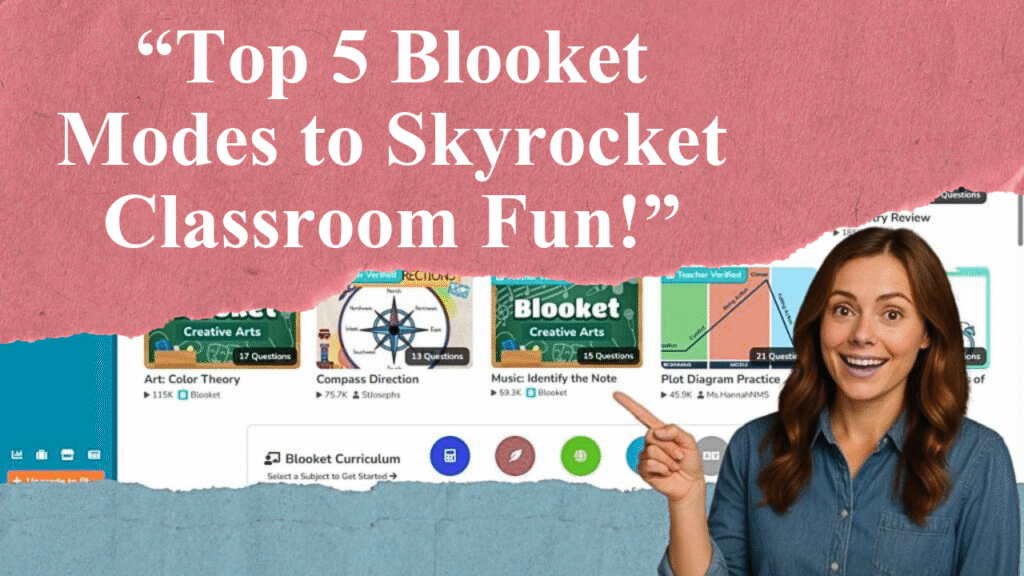Blooket’s random name feature promotes fair play by assigning anonymous nicknames, preventing bias and fostering inclusivity. This article explores how to enable it, its benefits for classroom engagement, and tips for effective use. It ensures equitable participation, reduces cheating, and enhances student focus on learning through gamified education.
Mastering Blooket’s Random Name Feature for Equitable Gameplay
Blooket is a dynamic educational platform that transforms learning into an engaging, game-based experience, similar to Kahoot or Quizizz. One of its standout features is the “Use Random Names” setting, designed to ensure fair play and maintain an inclusive classroom environment. This feature assigns random, anonymous nicknames to students during gameplay, removing personal identifiers and fostering impartiality. Below, we dive into how to use this feature effectively, its benefits, and practical tips for educators to maximize its impact.
Enabling the Random Name Feature
To activate the random name feature, teachers must first create or select a question set from Blooket’s “My Sets” or “Discover” sections. After choosing a game mode—such as Monster Brawl, Gold Quest, or Tower Defense—navigate to the game settings before hosting. Within these settings, locate the “Use Random Names” option and check the box to enable it. When activated, students joining the game via a game code, QR code, or join link will be assigned a randomly generated nickname, such as “CosmicPanda” or “StarVoyager,” instead of using their real names or self-chosen aliases. If unchecked, students can input their own nicknames, which may lead to inappropriate or identifiable names that could disrupt fair play.
Why Use Random Names for Fair Play?
The random name feature is a powerful tool for promoting equity and fairness in Blooket games. By removing personal identifiers, it prevents bias based on familiarity, popularity, or preconceived notions about a student’s academic ability. For example, anonymizing names ensures that teachers and peers focus on performance rather than personalities, creating a level playing field. This is particularly valuable in competitive game modes like Battle Royale or Gold Quest, where students might otherwise target or favor specific players.
Additionally, random names discourage cheating. When students use self-chosen nicknames, they may share game codes with friends outside the class or collude to manipulate scores. Anonymous nicknames make it harder for unauthorized players to join or for students to coordinate unfairly. This aligns with Blooket’s Terms of Service, which emphasize fair play and penalize exploitative behaviors like score manipulation or unauthorized access.
The feature also enhances inclusivity. Students who may feel shy or hesitant to participate under their real names can engage more confidently with an anonymous, fun nickname. This fosters a safe, judgment-free environment, encouraging all students to focus on learning and enjoying the game. According to educator reviews, Blooket’s gamified approach, bolstered by features like random names, keeps students motivated and engaged, even in fast-paced, competitive settings.
Practical Tips for Using Random Names Effectively
To maximize the random name feature’s benefits, educators should consider the following strategies:
Explain the Purpose to Students: Before starting a game, inform students why random names are used. Emphasize that anonymity promotes fairness, reduces pressure, and keeps the focus on learning. This transparency helps students understand the value of the feature and discourages attempts to bypass it.
Combine with Other Fair Play Settings: Blooket offers additional settings to enhance fairness, such as disabling late joining to prevent students from entering mid-game with an advantage or turning off “glitches” (power-ups that allow sabotaging others). Pairing these with random names creates a more controlled, equitable game environment.
Monitor Game Reports: Blooket’s free version provides post-game reports showing correct and incorrect answers, while Blooket Plus offers detailed insights into individual student performance. Use these reports to track engagement and identify any anomalies that might suggest unfair play, even with random names enabled.
Test the Setup: For younger students or those new to Blooket, run a practice game to familiarize them with joining and playing under random names. This helps troubleshoot technical issues, such as connectivity problems or incorrect code entry, ensuring a smooth experience. A stable internet connection and closing unnecessary browser tabs can further reduce glitches.
Encourage Ethical Play: Reinforce the importance of fair competition by discussing Blooket’s guidelines against hacks or exploits, such as auto-answer bots or score manipulation. Highlight that using random names supports a respectful, integrity-driven classroom culture. If vulnerabilities are noticed, report them to Blooket’s support team rather than exploiting them.
Challenges and Considerations
While the random name feature is highly effective, there are some challenges to consider. In post-game reports, data is tied to random nicknames rather than real names, which can make it harder for teachers to identify individual student performance unless students log in with accounts. To address this, encourage students to use accounts (optional for joining games) to track progress over time, or manually correlate nicknames with students if needed.
Additionally, some students may try to bypass the random name feature by refreshing the game or using third-party scripts, which violates Blooket’s Terms of Service and risks account bans. Educators should monitor for suspicious activity and reinforce the importance of ethical gameplay. Using random names also requires a stable internet connection, as connectivity issues can disrupt the assignment of nicknames or game access. Switching devices or browsers (e.g., from Safari to Chrome) can resolve persistent issues.
Enhancing Engagement with Random Names
The random name feature not only ensures fairness but also adds an element of fun to Blooket games. The playful, creative nicknames—often tied to Blooket’s themed “Blooks” (avatars like animals or space characters)—make the experience more immersive. Students enjoy selecting their Blook while waiting for the game to start, which adds to the excitement without compromising anonymity. Teachers can further engage students by choosing game modes that align with their interests, such as Tower Defense for strategy lovers or Fishing Frenzy for a fast-paced challenge, while keeping random names enabled to maintain fairness.
Real-Time Insights and Updates
As of July 2025, Blooket continues to evolve, with new game modes and features added regularly. The random name feature remains a staple across most live game modes, supported by Blooket’s commitment to fair and engaging educational experiences. Recent updates have improved the platform’s stability, reducing technical issues that could affect nickname assignment or gameplay. Educators can stay informed by checking Blooket’s “News” section on the dashboard or joining community discussions on platforms like Reddit, where users share tips and updates about Blooket’s features. However, always verify game codes and settings to ensure they align with fair play principles, as public codes shared online may not always be reliable.
Disclaimer: This article is based on information from Blooket’s official help pages, educator reviews, and community discussions as of July 2025. Always verify settings and guidelines on Blooket’s official website (blooket.com) for the most current information. Tips provided are for educational purposes and should align with Blooket’s Terms of Service to ensure fair play.
[qwam_quiz_box]




